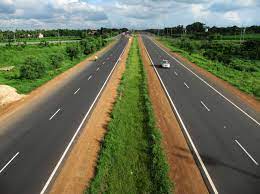The National Highways Authority of India (NHAI) has scrapped the requirement for developing wayside amenities along new highways and expressways by road contractors and concessionaires. Instead, NHAI will seek separate bids from companies for developing such amenities.
The step is aimed at attracting global expertise for creating wayside amenities (WSAs) in the country with a stronger focus on design and product innovations to boost return on investment while scaling up the experience of highway users.
Under the existing provision, a highway contractor or concessionaire is responsible for developing WSAs, placing an additional responsibility on contractors to build, run and maintain such facilities.
In a circular dated June 11, NHAI has issued guidelines for descoping of construction of wayside amenities from the scope of road contractor. It outlined the methodology for withdrawal of construction work of wayside amenities in various modes of civil works under engineering, procurement and construction (EPC) or hybrid annuity mode (HAM) and build-operate-transfer (BOT) mode. “Segregating the works of road construction and wayside amenities will help in getting a great focus for the latter. This can also lead to greater customisation and could garner interest from specialised players such as oil marketing companies and hospitality sector players,” said Jagannarayan Padmanabhan, senior director and global head, consulting at Crisil Market Intelligence and Analytics.
The ministry of road transport and highways has targeted about 1,000 WSAs over the next five years, one at every 50 km along national highways. Of these, 800 will be developed under public-private-partnership (PPP) mode, wherein NHAI will provide land and all requisite permissions along with supervision while the private player will be responsible for development, operation and maintenance of the facility for 15-30 years. So far, only 198 WSAs have been awarded while 162 are under bidding stage.
The government is of the view that these WSAs will offer huge opportunities to investors, developers, operators and retailers, pegging estimated returns of 15-30% on average capital investment of Rs 1-10 crore. Facilities that would be developed at each WSA include fuel stations, electric vehicle (EV) charging stations, food court, restaurants, dhabas, convenience stores, first aid or medical room including childcare room, dedicated area for promoting local artisans along with drone landing facilities and even helipads at bigger sites.





